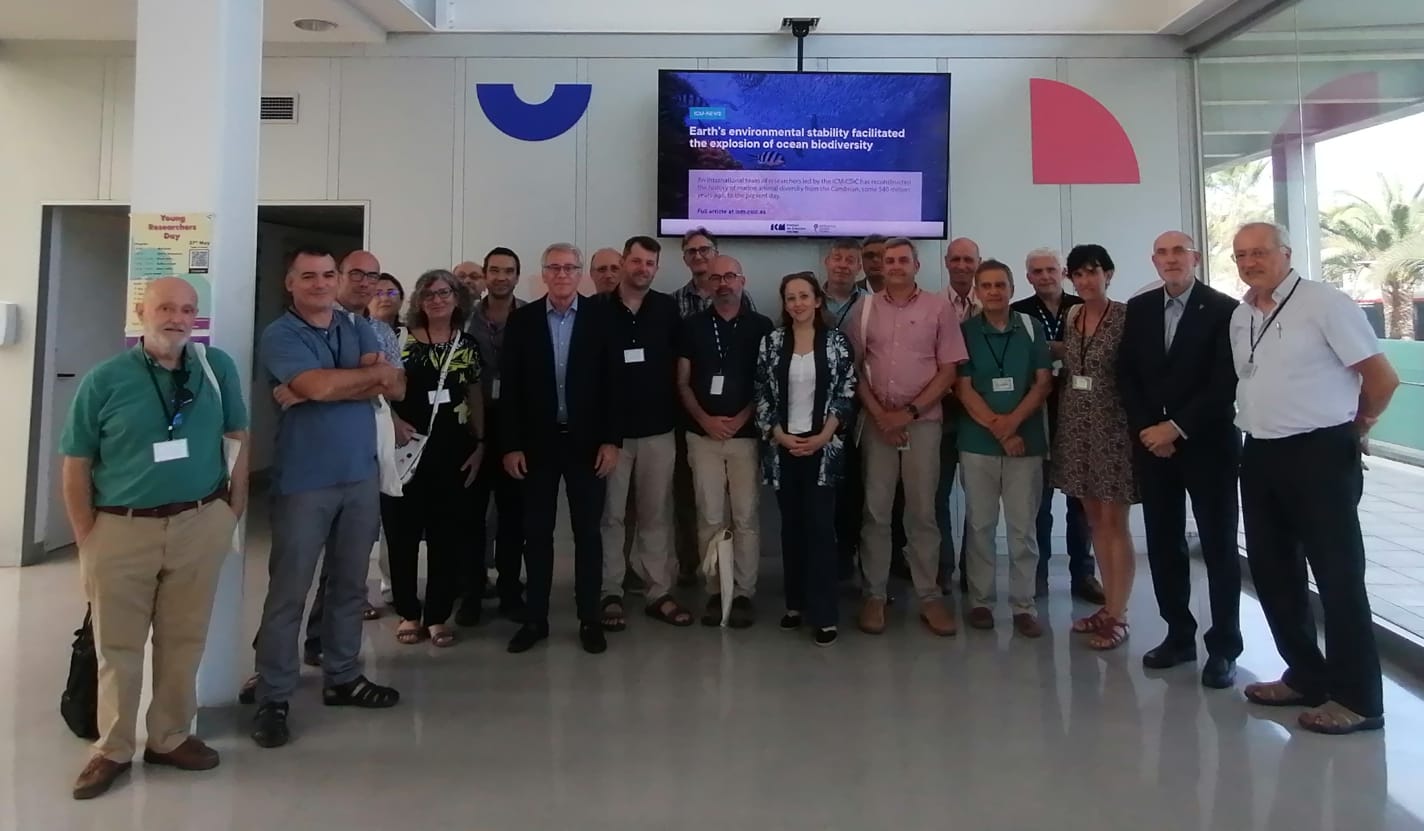The new president of the CSIC meets with the directors of the centres in Catalonia
Science is full of SHEroes whose passion, work and creativity inspired Evolutionary Biologists of today.
As part of our commitment with society, the Institute of Evolutionary Biology (IBE, CSIC-UPF) wants to give credit and visibility to the achievements of female scientists in evolution.
To that aim, we launched the campaign #WhoisyourSHEro to share stories of women who had an impact in our researchers' scientific career through our social media and website.
The campaign keeps on moving as more and more women in evolution are inspiring the IBE community.
You can join the conversation through social media under the hashtag #WhoisyourSHEro.
With the collaboration of the Spanish Foundation for Science and Technology - Ministry of Science and Innovation.
 |
The new president of the CSIC meets with the directors of the centres in Catalonia
Eloísa del Pino visited the building shared by the Institute of Evolutionary Biology (IBE, CSIC-UPF) and the Institute of Marine Sciences (ICM) in Barcelona, where she had her first contact with the directors of the CSIC centres in Catalonia.

Eloísa del Pino, the new president of the CSIC, yesterday visited the Institute of Evolutionary Biology (IBE) and the Barcelona Institute of Marine Sciences (ICM), where she met with the scientific and managerial teams of both centres. The president was accompanied at all times by the Institutional Delegate of the CSIC in Catalonia, Lluís Calvo; by the director of the IBE, Salvador Carranza, by the director of the ICM, Valentí Sallarés, as well as by the vice-presidents of Organization and Institutional Relations and International Relations of the CSIC, Carlos Closa and Javier Moreno, respectively.
Subsequently, he met at the same headquarters with directors and some researchers from the organization's centres and institutes in Catalonia, to find out about their activity and take an interest in future challenges.
The meeting was attended by Emilio O. Casamayor; director of the Centre for Advanced Studies of Blanes (CEAB); Santiago Giralt, deputy director of the Barcelona Institute of Geosciences (GEO3BCN); Luis Calvo, director of the “Milà i Fontanals” Humanities Research Institution; Salvador Carranza, director of the Institute of Evolutionary Biology (IBE, CSIC-UPF); Núria Verdaguer, director of the Barcelona Institute of Molecular Biology (IBMB); Xavier Obradors, director of the Barcelona Institute of Materials Science (ICMAB); Valentí Sallarés, director of the Institute of Marine Sciences (ICM); Teresa Moreno, director of the Institute for Environmental Diagnosis and Water Studies (IDAEA); Jesús Joglar, director of the Institute of Advanced Chemistry of Catalonia (IQAC); Roser Cortés, director of the Barcelona Institute for Biomedical Research (IIBB); Ramón López de Mántaras, from the Artificial Intelligence Research Institute (IIIA); Luis Fonseca, director of the Barcelona Institute of Microelectronics (IMB-CNM); and Jordi Sorribas, director of the Marine Technology Unit (UTM). Also present were Pablo Ordejón, director of the Institute of Nanoscience and Nanotechnology (ICN2); Guillem Alenyà, director of the Institute of Robotics and Industrial Informatics (IRI); Joan Pino, director of CREAF; Alfonso Susanna, deputy director of the Barcelona Botanical Institute (IBB); Sjaak Hurkens, deputy director of the IAE; and Salomé Prat, from CRAG.
Yesterday's was one of the first contacts of the new president with the CSIC centres in Catalonia. Eloísa del Pino was appointed president of this body on June 21 by the Spanish cabinet council. Del Pino thus relieved the chemist Rosa Menéndez, who spent almost five years at the head of the organization.
Del Pino also met with the rector of UPF, Oriol Amat; with the head of the Mercat del Peix project, Francesc Subirada, and the director of the Institute of Evolutionary Biology (IBE, CSIC-UPF), Salvador Carranza, to discuss the construction of the future IBE building.
With the president's visit, an agreement between the CSIC and the Barcelona City Council has also been closed. This is a collaboration protocol to promote a project to expand research spaces and, specifically, the facilities of the Mediterranean Center for Marine and Environmental Research (CMIMA), located on the Barcelona seafront, and which includes the Institute of Marine Sciences and the Marine Technology Unit.
The CSIC is the largest public institution in Spain dedicated to scientific and technical research and one of the most prominent in the European Research Area. In Catalonia, the CSIC has 14 centres of its own and 3 joint centres, shared with other institutions. Likewise, the CSIC participates in 4 centres.
